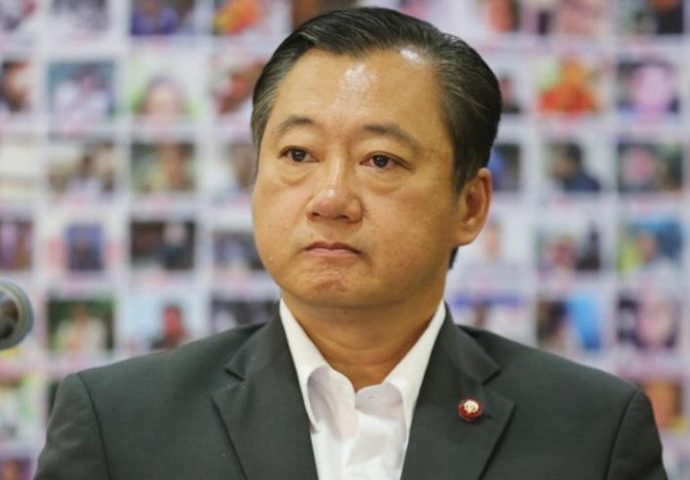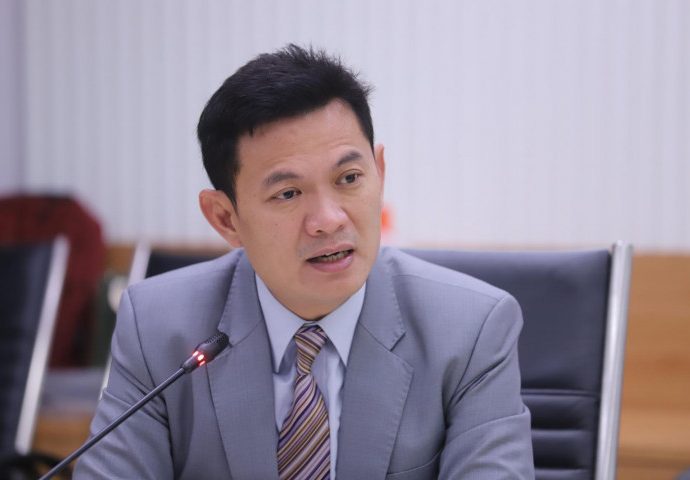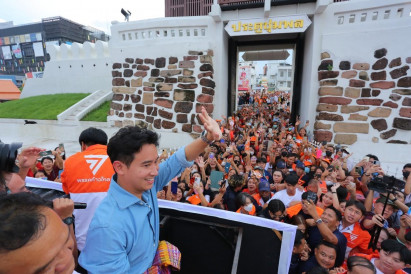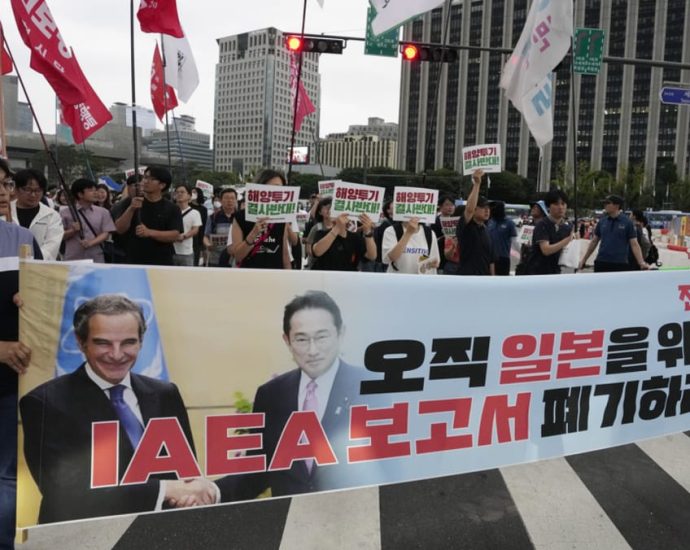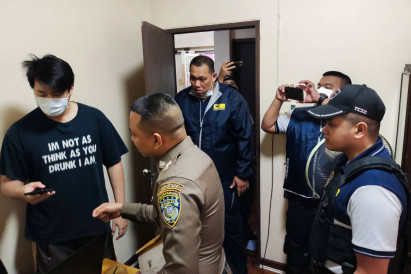Govt eyes economic boost from health and wellness tourism

The government is promoting health tourism and related products and services in a new campaign to get overseas visitors to spend at least 18 million baht by this September.
The “Discover the New You!” campaign is backed by the Tourism Authority of Thailand (TAT) and more than 130 health and wellness business operators, including hotels, health resorts, spas, hospitals and clinics.
“The prime minister [Prayut Chan-o-cha] appreciates the cooperation from all sectors to promote health tourism and sustainable tourism,” government spokesman Anucha Burapachaisri told the media yesterday.
“The premier is also confident that this activity will draw the attention of tourists and add economic value,” he said.
The campaign is aligned with the Amazing Thailand Health and Wellness New Chapters New Experience project, which aims to sell products that appeal to tourists under the concept of “meaningful wellness”.
In addition, the TAT has invited business operators and social media influencers to join the campaign. But for now, related media networks will promote 15 health tourism routes.
The TAT said the aim is to capitalise on Thailand’s reputation for health and wellness products and stimulate the economy through tourist spending that the government is confident can top 18 million baht by September.
Those interested in the campaign can find out more information on the “discoverthenewyou.travel” website and the “@tat-wellness.th” official Line account.
Book by exiled academic banned for ‘insulting’ the King: Gazette

A book about the monarchy written by academic-in-exile Pavin Chatchavalpongpun has been banned in Thailand for defaming the monarchy, according to a police announcement published in the Royal Gazette on Friday.
The announcement said the cover and contents of Rama X: The Thai Monarchy under King Vajiralongkorn reflected attitudes that are insulting, defamatory and display great malice towards the king, the queen, the heir apparent or regent and threaten national security, peace, order and public morality.
The announcement was signed by Pol Gen Damrongsak Kittiprapas, the national police chief, on June 19, according to the Royal Gazette. It cited Section 10 of the Printing Recordation Act 2007 in banning the book.
Anyone who imports the book into Thailand is liable to a jail term of up to 3 years and/or a fine of up to 60,000 baht. The police chief has the authority to destroy the book, said the announcement, which takes effect immediately.
“My book has been banned despite the fact that nobody has read it,” Mr Pavin wrote on his Facebook page. “It will be on shelves in the United States in October and an e-book will also be available.”
Mr Pavin, 52, is a professor at Kyoto University and editor-in-chief of the Kyoto Review of Southeast Asia, published by the school’s Center for Southeast Asian Studies. He worked for the Ministry of Foreign Affairs for 13 years before becoming a political science academic. He has been an outspoken critic of the political establishment and pushed for reform of Section 112 of the Criminal Code, the lése-majesté law.
He moved to Japan in 2012 to take up his position at Kyoto University, but comments regularly on Thai affairs for international publications. After the 2014 military coup, he was ordered to report to authorities but refused.
The National Council for Peace and Order later issued an arrest warrant for Mr Pavin but he declined to return to Thailand and has been living abroad ever since.
MFP faces uncertain fate

The parliamentary vote to select the new prime minister is less than a week away and it is anybody’s guess who will emerge as the country’s next leader.
Under the charter, a candidate must receive at least 376 votes from among 500 MPs and 250 senators to become prime minister.
As things currently stand, the eight-party coalition led by the Move Forward Party (MFP) controls 312 House seats, so it needs the support of at least 64 votes from either senators or MPs outside the bloc to secure MFP leader Pita Limjaroenrat’s bid to become prime minister.
When the joint sitting of MPs and senators convenes this Thursday for the crucial vote, political observers don’t think the new prime minister will emerge in one round of voting. The coalition formation is likely to shift if Mr Pita cannot muster enough support to meet the 376-vote threshold after the second round.
In that event, observers present two possible scenarios: Pheu Thai, the second largest party in the eight-party bloc, may nominate Srettha Thavisin and a joint sitting of parliament may vote for Mr Srettha to be the next prime minister.
Or, Pheu Thai will take the lead in the coalition and bring in new partners or form a new one without the MFP.
In the latter scenario, either Mr Srettha or Gen Prawit Wongsuwon, leader of the Palang Pracharath Party (PPRP), may be voted in as prime minister, while the MFP may be forced into opposition.
Alliance to move forward
The selection of the House speaker and two deputies is a strong sign the formation of the eight-party coalition is on track, said MFP deputy party leader and list-MP Natthawut Buaprathum.
He said the bloc is also counting on MPs from outside the bloc and senators who indicate they will respect the majority’s wishes and so vote for Mr Pita to be prime minister.
Mr Natthawut said the number of senators expected to vote for Mr Pita is believed to exceed the number the MFP-led alliance needs and he expects the prime minister will be known in just one round of voting.
He said the party will prep Mr Pita for questions to be raised when he presents his vision speech before the joint sitting and if the party can address concerns, some may have a change of heart.
Many senators are against the MFP’s policies to amend the lese majeste law and may vote against Mr Pita or cast a vote of abstention.
“We believe several senators have decided to vote for him but keep the decision to themselves. The number of those in favour of Mr Pita is growing,” he said.
According to the MFP deputy party leader, at this point there is no situation in which the MFP would have to join the opposition and it will take a while before any legal cases against Mr Pita are finalised.
The MFP leader faces complaints questioning his eligibility over a shareholding in iTV Plc. The constitution bars individuals with media shareholdings from running for office.
Mr Natthawut also ruled out the possibility of some party MPs switching sides and dismissed speculation the party could be at a disadvantage because the House speaker is now in the hands of the Prachachat Party, known to be close to Pheu Thai.
He said the party’s fight for the House speaker post has nothing to do with the prime minister vote and the issue is settled now that Wan Muhamad Noor Matha, of the Prachachat Party, has assumed the role.
Regardless of who the House speaker is, the coalition is obliged to follow the memorandum of understanding on coalition formation which it signed, he said.
He said it is time for the country to have a government which can handle pressing matters including investors’ confidence and the budget bill for the 2024 fiscal year.
Asked if the MFP is ready to vote for a prime minister candidate from Pheu Thai, he said he believed every party has selected the best it can offer but it is too soon to consider them.
“We must support the MFP’s candidate first. But if we really have to pick someone else, we will consider candidates from within the alliance,” he said.
Two rounds ‘should be enough’
There is no limit as to how many times a prime minister vote can be held.
Mr Wan indicated that if a candidate fails to win a first round of voting, further rounds will be held until a candidate reaches the 376-vote threshold. A second round of voting is tentatively scheduled on July 19.
However, there are fears among the Pheu Thai Party that the deadlock can trigger the opposing bloc to nominate a challenger to Mr Pita in a bid to form a minority government.
According to a source in Pheu Thai, although the constitution does not put a limit on how many times parliament will meet to select the prime minister, there is no point in still nominating Mr Pita after two rounds.
There would be no problem if the Senate was not involved in the selection process, and without its support the eight-party alliance still needs MPs from outside the bloc, with Bhumjaithai currently on its radar, said the source.
But Bhumjaithai, which has 71 House seats, is against amending the lese majeste law and the party MPs abstained when the House voted to select the first deputy speaker candidate from the MFP.
The Chartthaipattana and Democrat parties may also be brought on board, but the alliance will have to wait and see how the Democrat leadership race turns out, according to the source.
“But above all, it should be agreed how many rounds of voting should be enough. If it drags on, the other bloc may nominate a challenger. And if they do, they may succeed,” said the source.
It is unlikely that Bhumjaithai will give Mr Pita votes without getting anything in return. In fact, party is expected to drive hard bargain, said the source.
If Mr Pita’s bid fails and Pheu Thai steps in to lead the coalition, the party will nominate Mr Srettha in parliament, the source said, ruling out the possibility of “an outsider” prime minister.
In case parliament fails to select a new premier from the candidate lists supplied by the parties, Section 272 allows half of the 750 MPs and senators to initiate a motion to suspend the rule requiring that PM candidates come from party lists.
Such a motion requires the support of two-thirds of all the lawmakers, or 500, to suspend the rule. A nominated outsider would also need at least 376 votes to become prime minister.
The source admitted that although the House speaker selection was quick and smooth, the prime minister vote could face hiccups. “There are concerns about renegade MPs,” the source said.
PM will emerge ‘from Pheu Thai’
Witthaya Kaewparadai, deputy leader of the United Thai Nation Part (UTN), said the MFP has put itself in a difficult position and if it cannot get itself out, Pheu Thai will take the lead in coalition formation.
He was referring to the MFP’s stance that it would not do business with those who supported Prime Minister Prayut Chan-o-cha in the 2019 general election.
The MFP and its partners will have to work things out with parties they brand “dictatorship” parties, he said, adding they know what the rules are, but still choose to put themselves on the spot.
However, Pheu Thai is considered to be in a better position than the MFP to clinch the PM post because it is opposed to revising the lese majeste law, said the UTN deputy leader.
“Whether or not there will be more parties added to the coalition depends on whether they reverse their stance [on not working with pro-military parties],” he said.
Asked about the UTN’s stance, he said the party made its stance clear when it put up MP for Phitsanulok, Padipat Suntiphada, for the first deputy House speaker post, challenging the MFP.
Sen Somchai Sawaengkarn said the MFP’s election victory caught the Pheu Thai Party off guard and posed a threat to the party which was banking on the two-ballot system to deliver it a landslide win.
In his view, Pheu Thai will negotiate to be part of the next coalition government and if an alternative is possible, the party may drop the MFP and join hands with Bhumjaithai or the PPRP.
“Pheu Thai’s goal is to be in the government and it’s willing to drop the prime minister post. It may even give the post to the PPRP but it’s not easy due to pressure from MFP supporters,” he said.
According to the senator, Pheu Thai will not nominate Paetongtarn “Ung Ing” Shinawatra, daughter of deposed prime minister Thaksin, this time to hold off critics.
Mr Somchai rejected speculation about the current government bloc forming a minority government because it would be short-lived and it would backfire when the next elections are held.
“A minority government is unnecessary and it’s not the way things should be. The parties that opt for this won’t survive the next polls,” Mr Somchai added.
Talks back aid fund for ex-workers

Implementation ‘may take years’
A tripartite working group, involving representatives of employees, employers, and the government, has reached a consensus on the need to create a contingency fund to guarantee financial compensation for laid-off employees.
This working group, formed in February and headed by the permanent secretary for Labour, Boonchob Suthamanuswong, has been studying the proposal extensively, the Bangkok Post has learned.
All parties were asked to offer their opinions and viewpoints. However, the employers’ representatives requested an implementation delay of two to three years before they are obligated to contribute regularly to the fund.
This delay request, according to Chao Khlaicharoen, speaking for the employees, makes it unlikely that the fund can be set up within the next couple of years.
Employer representatives cited the lasting financial burden of the Covid-19 pandemic as one reason to ask for a postponement of the contingency fund, Mr Chao said.
It also casts doubt on whether a new law or supplementary regulations would be needed for the fund’s execution.
The fund, despite its importance for protecting the rights of laid-off workers, has faced some opposition. Some employers’ representatives have expressed concerns about being forced to deposit large sums into the fund that they can’t withdraw, primarily to guarantee redundancy pay.
“To force employers to put a huge amount of money in an account that they aren’t allowed to withdraw from to ensure they will pay the compensation doesn’t seem like an ideal measure with which most employers will really agree,” said an employer representative.
Despite all sides agreeing the fund is needed to ensure the protection and rights of workers who are laid off and entitled to receive compensation under labour laws, no clear conclusion has been reached as to when this proposal will be implemented, said Ukrit Kanchanaket of the Employers’ Confederation of Thailand (ECOT).
He urged more discussions about the proposal, which at this point has been agreed on in principle.
Kanjana Poolkaew, deputy director of the Department of Labour Protection and Welfare, said more discussions will follow.
The number of employers flouting the labour protection law, passed in 1998 to protect laid-off workers following the 1997 Asian financial crisis or “Tom Yam Kung Crisis”, might not be high.
However, many workers suffer the consequences of this law violation, said Somphot Anchaya, a representative from the employee side.
The committee manages the existing fund which pays compensation to laid-off workers who have been unlawfully refused compensation by employers.
Some foreign investors have simply fled the country and avoided paying the compensation, while others claimed they didn’t have enough money to meet the payments, said Mr Somphot.
The existing fund is legally capable of only paying 70 times the daily pay rate of each laid-off worker — an amount far too low for helping laid-off workers whose employer refused to pay them in full, he said.
This issue is compounded by the fact that employers refusing to pay redundancy can still close their businesses and open new ones due to government policies supporting new businesses.
The contingency fund is needed to safeguard workers’ rights, he said.
MFP’s green spaces bill passes first reading

The Bangkok Metropolitan Council has passed the first reading of a Move Forward Party-backed bill increasing green space in the capital.
Putthipat Thanyathammanon, a councillor for Yannawa district from the MFP, said yesterday he proposed a motion to a council meeting on Thursday that the bill be put to a vote. It passed with 31 votes in favour against two abstentions.
The aim is to enforce a 50% open space requirement on new construction projects for growing trees or plants as trees and greenery will help absorb dust, improve air quality and lower city temperature, he said.
In the motion, all households must devote 50% of their available outdoor space for planting tress, so owners of a house with a 30m² outdoor area would be required reserve 15m² for planting trees and other approved greenery.
He said the motion will be applied to new and renovated building and housing projects. The measure excludes existing and old buildings.
He said the requirement will help to tackle the lack of green space in Bangkok, although the Bangkok Metropolitan Administration also has a budget to grow trees on road islands or using the pillars of skytrain projects for vertical gardens if necessary.
The World Health Organisation recommends a minimum of 9m² of green space per individual but in Bangkok, the area is only about 7m².
After passing the first reading, the council will have a 17-member committee deliberate the motion before submitting it to the council for second and third readings. “This bill is a proactive measure to help meet our basic right to health,” said Mr Putthipat.
Democrats prepare to put new pick in hot seat

A new Democrat leader should have a clean track record and a clear vision and be ready to work while in the opposition, said former Democrat Party leader Chuan Leekpai.
Speaking ahead of today’s selection of a new leader to replace Jurin Laksanawisit who resigned in a show of responsibility over the party’s poll defeat, Mr Chuan said it does not matter if the new leader is young but he or she should have a vision and integrity and be able to unify the party.
Mr Chuan said he has been with the party for more than 50 years and seen it go through ups and downs. Former Democrats like Warong Dechgitvigrom, Thaworn Senneam and Suthep Thuagsuban not only worked hard for the party but also had the national interest at heart.
“So I hope we get a leader with high potential who will work for the country, instead of someone who just wants to join the government or tries to do anything to be part of it.
“I don’t want to see that because the Democrat Party can work as either the government or the opposition. It doesn’t have to be in the government or it will lose its quality of being a political institution,” he said.
Mr Chuan declined to comment on criticism over the potential candidates vying for leadership.
Alongkorn Ponlaboot, current Democrat deputy leader, is the only MP to announce a bid to run for the party leadership.
Other potential candidates include Suchatvee Suwansawat, the Democrat Party’s Bangkok governor candidate; Watanya Bunnag, who heads the party’s working group on political innovations; and Det-it Khaothong, the Democrats’ acting secretary-general.
Former Democrat list-MP Chaiwat Traisunant yesterday backed former party leader Abhisit Vejjajiva’s return to the party’s helm, saying the ex-leader is best suited to lead the party.
Mr Abhisit, also a former prime minister, led the Democrats from March 2005 to March 2019. However, Mr Abhisit has not publicly expressed any interest in the post.
Mr Chaiwat also called on the new executive board not to join the coalition government because the Democrats have only 25 House seats which is not enough to drive the party’s policies and restore popularity.
If the Democrat party focuses its resources on performing a checks and balances role as the opposition, it may be able to restore public faith, Mr Chaiwat added.
Pita pleads for support ahead of crucial vote in parliament

Pita Limjaroenrat, leader and sole prime ministerial candidate of Move Forward Party (MFP), has urged his supporters to gather outside CentralWorld in Bangkok today in what he described as a get-together planned ahead of the July 13 parliamentary vote to decide the new prime minister.
He announced the gathering on his Facebook page, saying July 13 will be a important day for the country.
Even though the MFP has already won more than 27 million votes, or approximately 72% of all eligible voters in the May 14 general election, it still has to wait for the Senate to decide its fate, said Mr Pita, referring to the 250 senators whose votes could prove decisive.
“I believe all members of parliament will listen to the people’s voice,” he said.
Interested parties are invited to the get-together which is to begin at 4.30pm to allow them to get up close and personal with Mr Pita, and offer moral support to him and his MFP MPs, the post said.
Meanwhile, MFP secretary-general Chaithawat Tulathon has called a meeting of the eight parties in the MFP-led alliance at parliament on Tuesday to prepare for Thursday’s vote, said a source.
The seven prospective coalition partners have now demanded a clear answer from the MFP as to how many senators will actually support Mr Pita as the MFP’s claims seem to contradict recent media interviews by certain senators.
Despite asserting they will stick to their commitment to support Mr Pita, the other coalition members believe, as a potential government leader, that the MFP should do more to reassure them, said the source.
In another development, many MFP supporters have shared an open letter by Senator Wutthiphan Wichairat who interpreted His Majesty the King’s speech to open parliament on July 3 as a coded message endorsing Mr Pita’s bid. The senator quoted a section in which the King urged members of parliament to perform their duty in the best interest of the nation as his evidence for writing the letter.
Meanwhile, Tawee Sodsong, secretary-general of Prachachat Party, one of the coalition partners, reiterated his support for Mr Pita to become prime minister.
He also dismissed rumours House Speaker Wan Muhamad Noor Matha, 79, may only perform the duty for a year due to his age. Mr Wan is fit enough to complete this four-year term, he said.
Cambodian politician ‘faces deportation’

A member of a banned Cambodian opposition party has been arrested in Bangkok and is at risk of deportation, according to Human Rights Watch.
Thol Samnang is being held at the Suan Phlu immigration detention centre in central Bangkok, Sunai Phasuk, senior researcher on Thailand with HRW Asia, said yesterday.
According to local media reports, Thol Samnang was preparing to visit a UNHCR office when he was apprehended near Victory Monument.
Mr Sunai said in a tweet that Thailand’s new anti-torture and forced disappearance legislation prohibits the deportation of people who may face harm in the destination country.
The Candlelight Party, the only meaningful opposition party left in Cambodia, in late May lost its bid to overturn a state-imposed ban on it taking part in the national elections on July 23.
Cambodia’s National Election Committee had refused to register the party after it failed to submit certain documents. The Constitutional Council subsequently upheld the decision, paving the way for long-serving Prime Minister Hun Sen to run a one-horse race.
Critics and rights groups accuse him of using the legal system to crush any opposition to his rule, particularly in the run-up to elections.
The Candlelight Party gained traction in last year’s local polls, claiming 22% of the popular vote, and was planning to challenge Hun Sen’s ruling Cambodian People’s Party (CPP) in every constituency in the national polls.
In the 2018 elections, the CPP won every seat after the opposition Cambodia National Rescue Party (CNRP) was dissolved. The Candlelight Party was founded in 1995. In 2012, it merged with other opposition forces to form the CNRP.
South Koreans protest Japan’s plans to release treated wastewater from damaged Fukushima plant
SEOUL: Hundreds of people marched in South Korea’s capital on Saturday (Jul 8) demanding Japan scrap its plans to release treated wastewater from the damaged Fukushima nuclear power plant, as the head of the UN nuclear agency met with senior officials to discuss public concerns over food safety. The protestsContinue Reading
Child porn suspect âoperated more than 30 sitesâ
Man arrested in Chiang Mai also employed eight people in Udon Thani, say police

A 28-year-old man arrested on child pornography charges was found to be operating more than 30 pornographic websites during a police raid on his two houses in Chiang Mai and Udon Thani provinces.
Police armed with a warrant arrested Chaiyaphat Junapong in front of a house in San Pa Tong district of Chiang Mai on Friday, said Pol Maj Gen Athip Wongsiwaphai, commander of the Technology Crime Suppression Division (TCSD).
The arrest followed a tip-off from officials at the US Federal Bureau of Investigation (FBI) and Homeland Security Investigations (HSI) about networks of pornographic websites they believed to be operating from Thailand.
According to the TCSD commander, many offenders distribute pornographic materials on websites and social media, claiming they feature famous actresses and net idols in order to attract viewers. This causes damage to those wrongly claimed to be depicted.
TCSD investigators have also found that many children and young people had fallen victim to those who produced child pornography for distribution online, said Pol Maj Gen Athip.
The latest investigation found that Mr Chaiyaphat was a member of a major child pornography network, with houses in Chiang Mai and Udon Thani. Investigators then sought court warrants to search the two locations.
Seized from the house in Chiang Mai were a computer and two mobile phones. Officers who examined the devices found more than 10,000 pornographic images and videos had been uploaded.
A search of the suspect’s house in Muang district of Udon Thani found many computers and documents about marketing plans for porn websites there. Eight employees were working there during the raid, said Pol Maj Gen Athip.
Mr Chaiyaphat faces charges of producing and distributing child pornographic materials for trade, putting them into a computer system and possessing child pornography for personal gain.
During questioning, Mr Chaiyaphat denied all charges and said he would give his statement before the court only.
He was held police custody for legal proceedings.



